What is tragedy chanting? Football banning orders handed to fans reach record levels
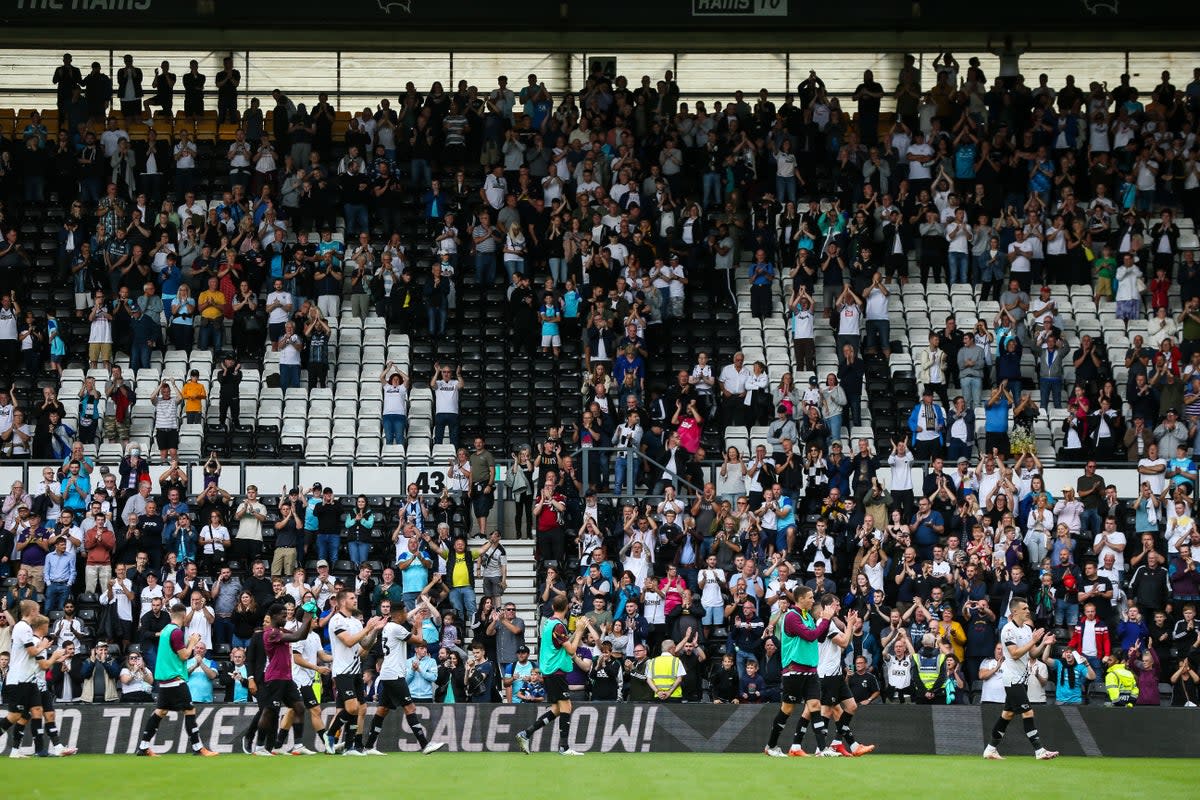
Last season, the Met secured 197 football banning orders, the largest amount in a single season.
Under these orders, the majority of fans will surrender their passports to police before the start of the European Championships, meaning they will be banned from travelling to Germany for the tournament.
It could also mean supporters are excluded from the vicinity of a stadium or town for domestic matches and must give up their passports for European competitions or international fixtures.
In April alone, the Met applied for 79 football banning orders. The football policing unit secured 52 bans for public order offences, including eight for tragedy chanting and another eight for racially aggravated public order offences.
There were also 28 bans for assault and 48 bans for football-related offences including throwing missiles onto a pitch, going onto a pitch and flares. In addition to this, 51 three-year banning orders were given last season for fans found with class A drugs on them.
Chief Inspector Pete Dearden, who leads football policing for the Met, said: “This has been a brilliant effort from the football policing unit to secure the banning orders and prevent serious disorder taking place in our communities on matchday. The majority of our officers working on football are fans themselves, we understand the passion but want to make sure matches taking place in the capital are safe spaces for everyone attending.
“We know the Euros is going to be a hugely popular tournament for fans travelling from London to watch England hopefully bring football home. Our dedicated football officers have worked tirelessly with clubs across the capital to secure the bans for fans who cause disorder at domestic matches, to stop them doing the same abroad.
This comes after a football fan was charged with causing harassment, alarm or distress for their behaviour during Manchester United’s draw with Burnley in April. Labour MP for Liverpool West, Ian Byrne, had shared concerns about the chants referencing the 1989 Hillsborough Disaster were heard coming from a small group of home fans.
In Pictures | Munich Air Disaster memorial in Belgrade
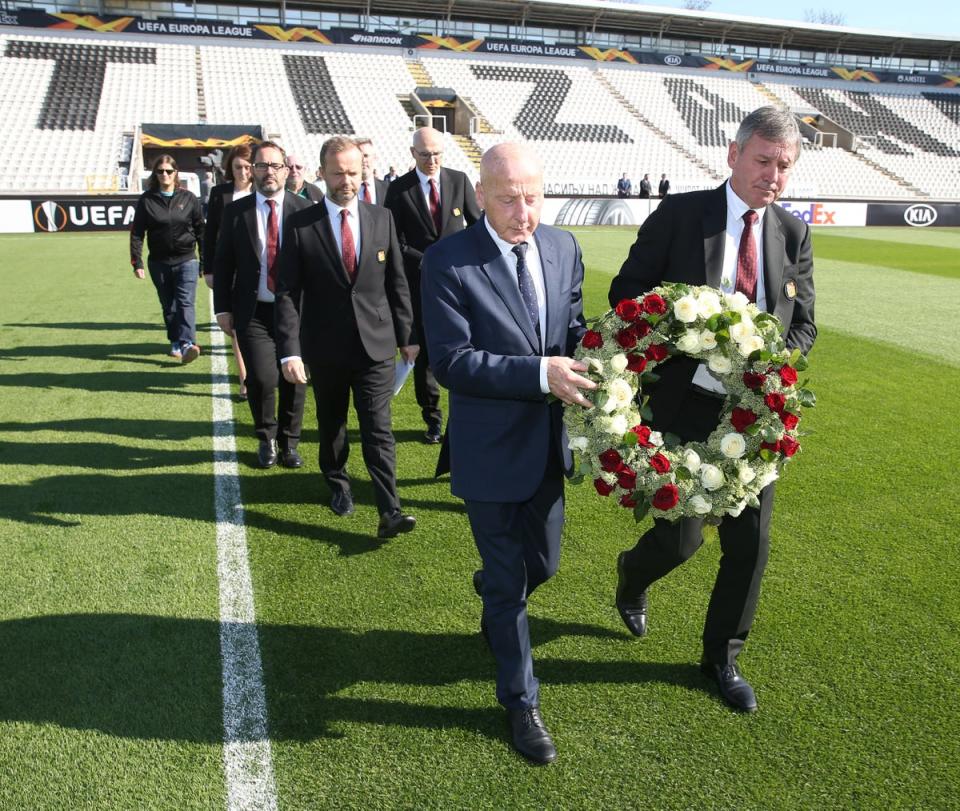
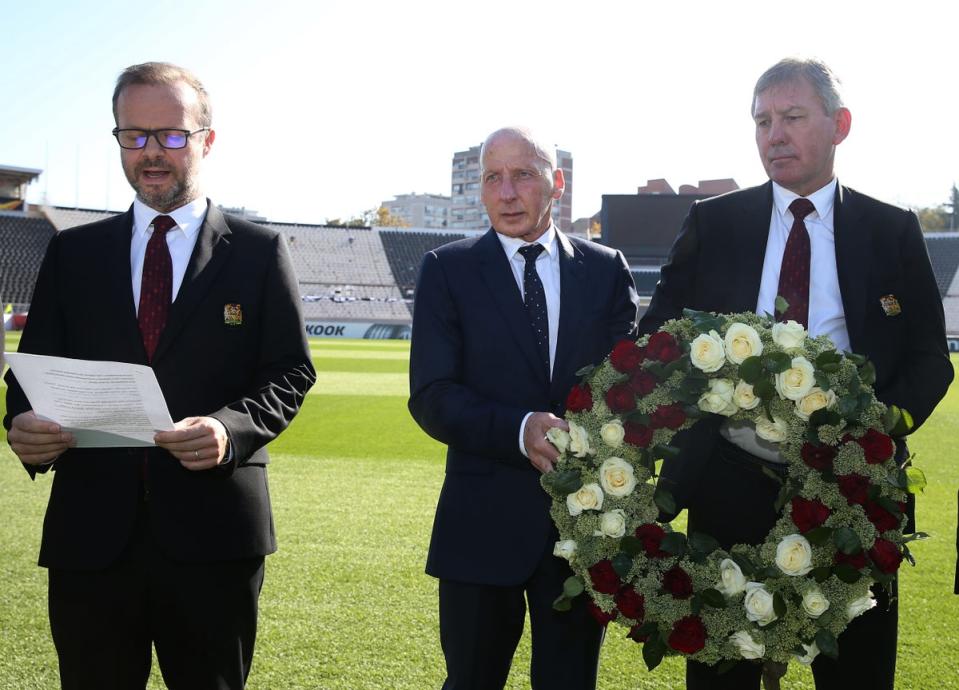
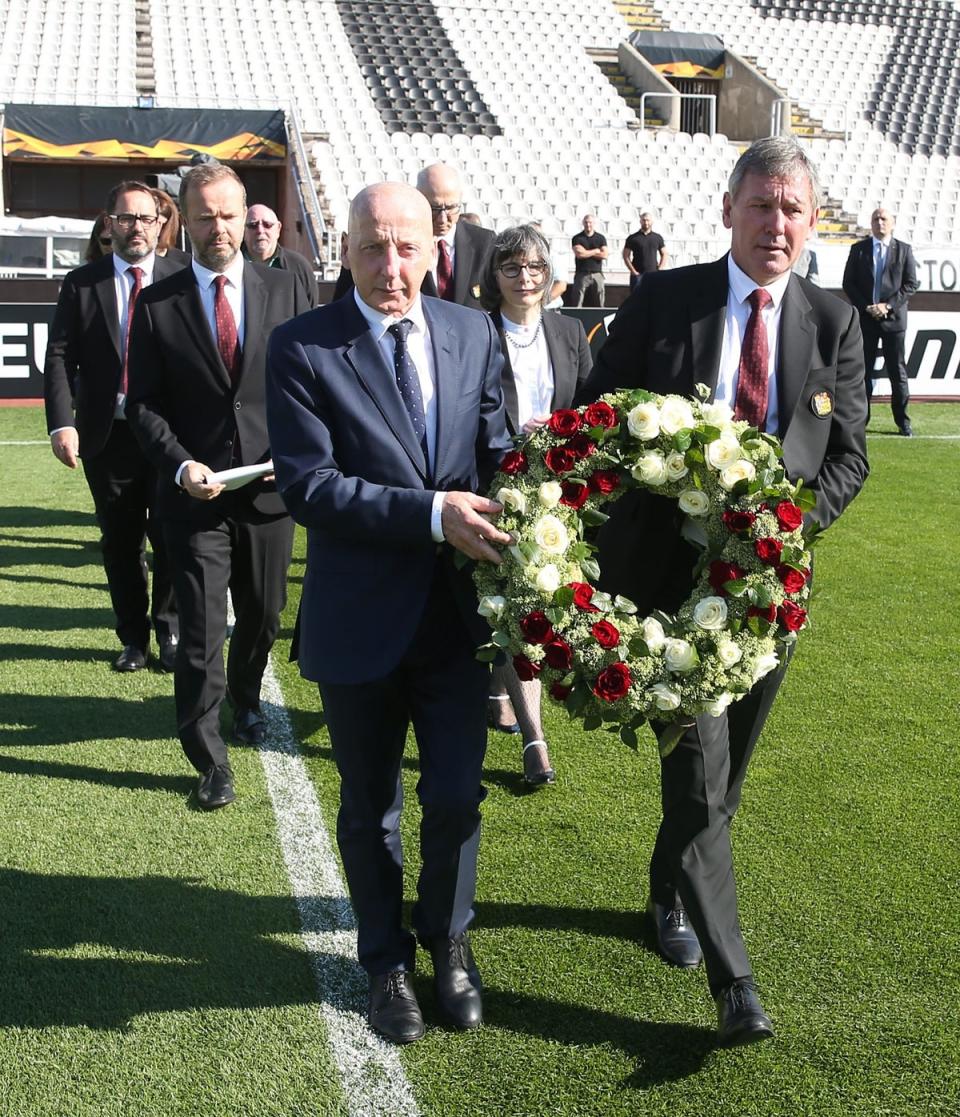
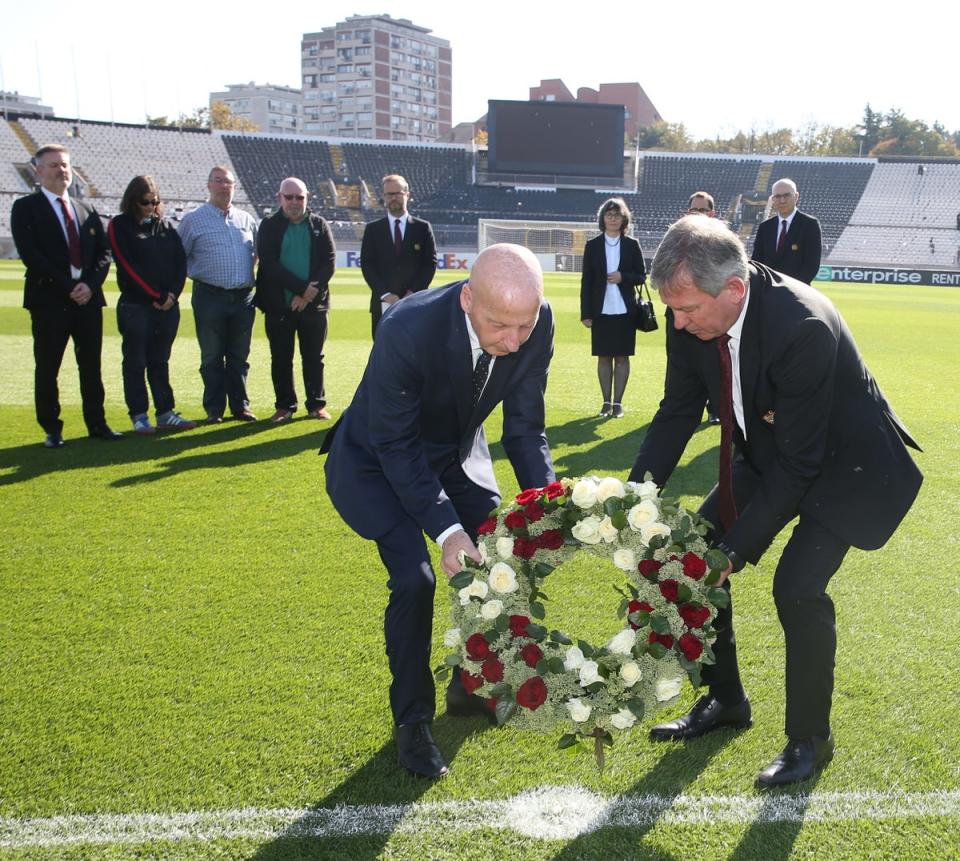
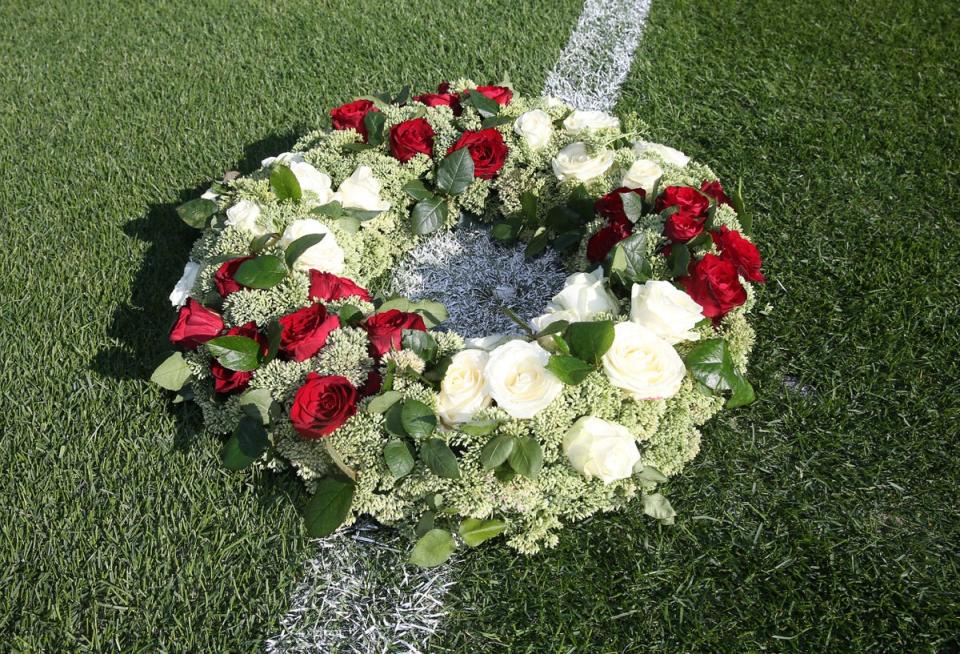
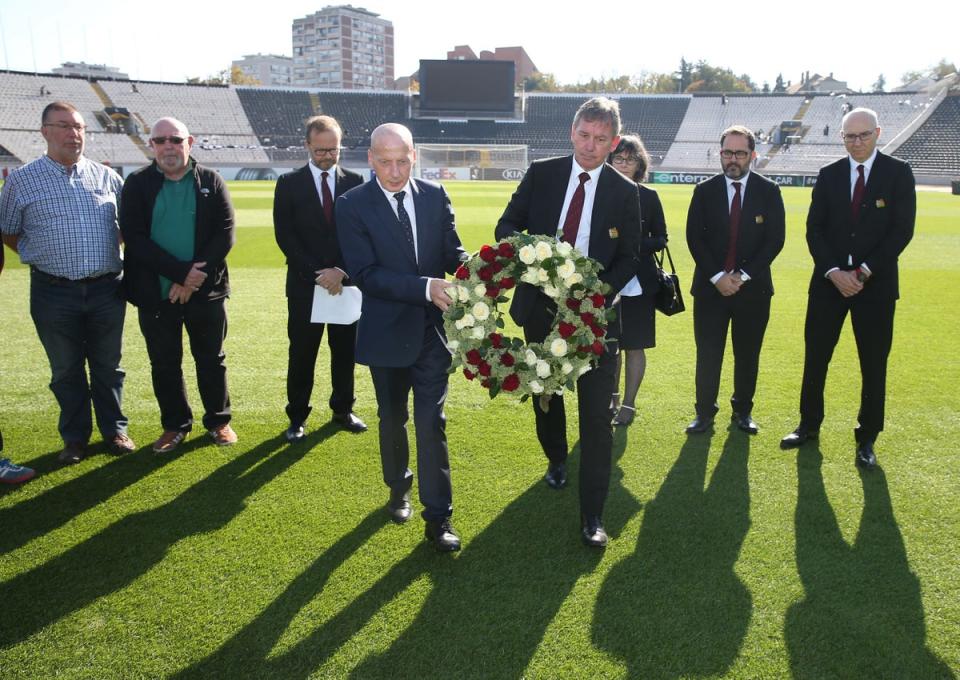
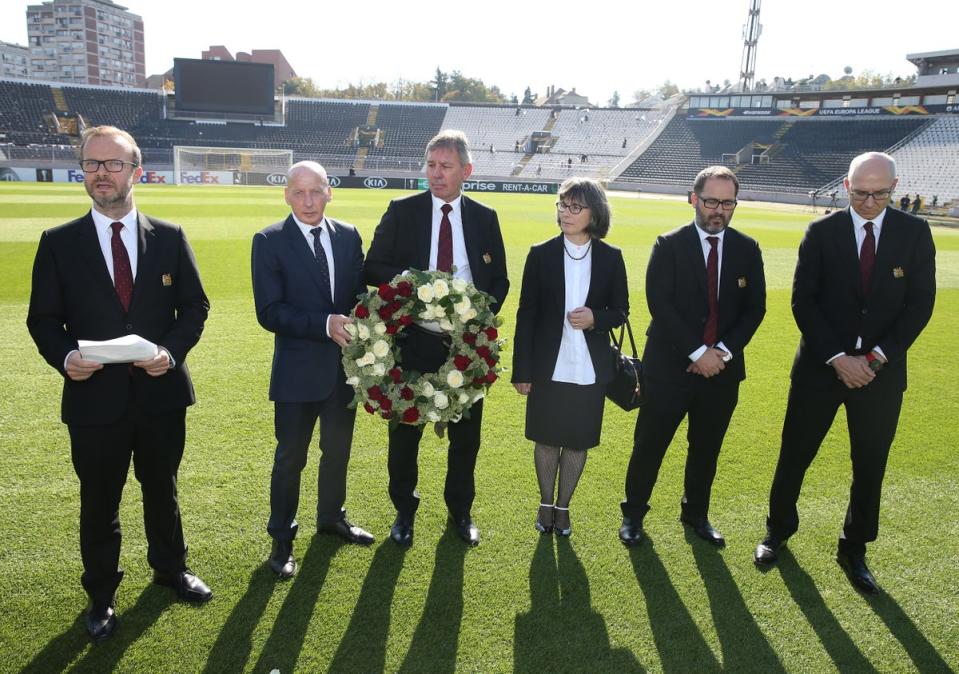
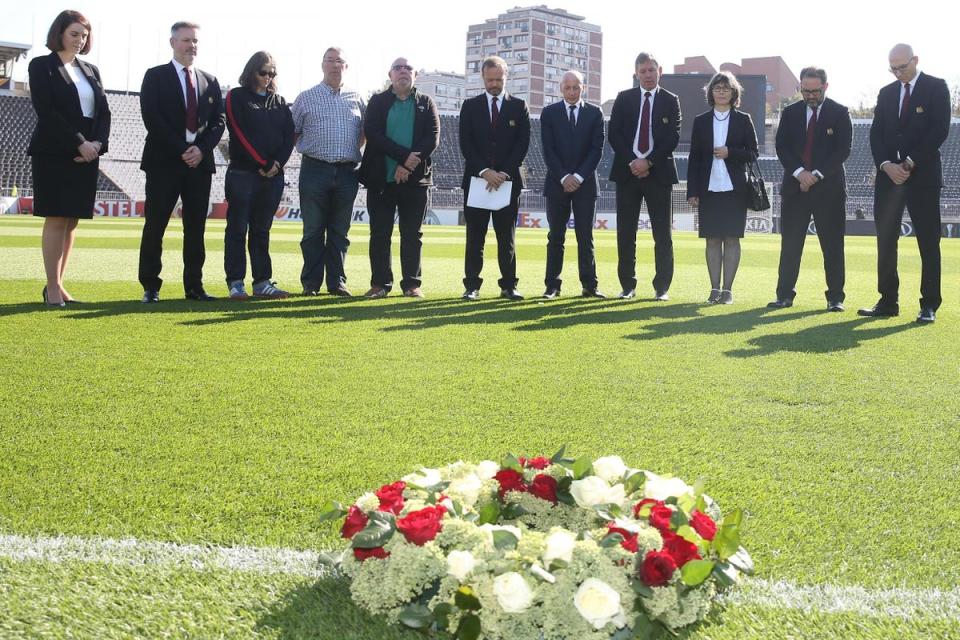
Burnley FC said it took action on one of their own supporters after his alleged ‘tragedy chanting’ was shared on social media. Nathan Rawlinson, 44, of Bacup, Lancashire, was later charged.
Other negative behaviour has seen fans mock the Munich air disaster, the Bradford Fire, and the death of Emiliano Sala.
It is not known what the Burnley fan was mocking but the Munich air disaster is a tragedy that affected Manchester United in 1958.
The Crown Prosecution Service (CPS) released guidance last year that sets out how Football Banning Orders can be applied to stop badly-behaved fans from attending matches and tournaments such as Euro 2024.
Douglas Mackay, of the CPS, said: "A small minority of so-called fans are both damaging the reputation of the sport and more importantly this offending has a devastating impact on the families of victims of tragedies and the communities connected closely to these events. We want supporters to passionately enjoy our national sport without crossing the line into criminality."
The move has been backed by the chief executives of the Football Association, Premier League, and English Football League - here is what it all means.
What is tragedy chanting?
Sledging or heckling opponents is nothing new in football, but even on the terraces, there is a line against the deeply offensive.
Tragedy chanting is the singing, shouting, or gesture-making about a traumatic event - often in the history of a club they are playing or about to play.
In 2011, this saw Crawley Town ban a fan for life after he made a gesture throughout the club’s official video ahead of their FA Cup tie with Manchester United. His aeroplane action referenced the Munich air disaster in 1958 in which 11 players and staff died.
More recently, the same tragedy was referenced by some Leeds fans against Man U in a Premier League fixture. A few Red Devils’ fans responded by taunting the Whites’ fans about an incident in 2000 when two Leeds supporters were killed in Istanbul before a game.
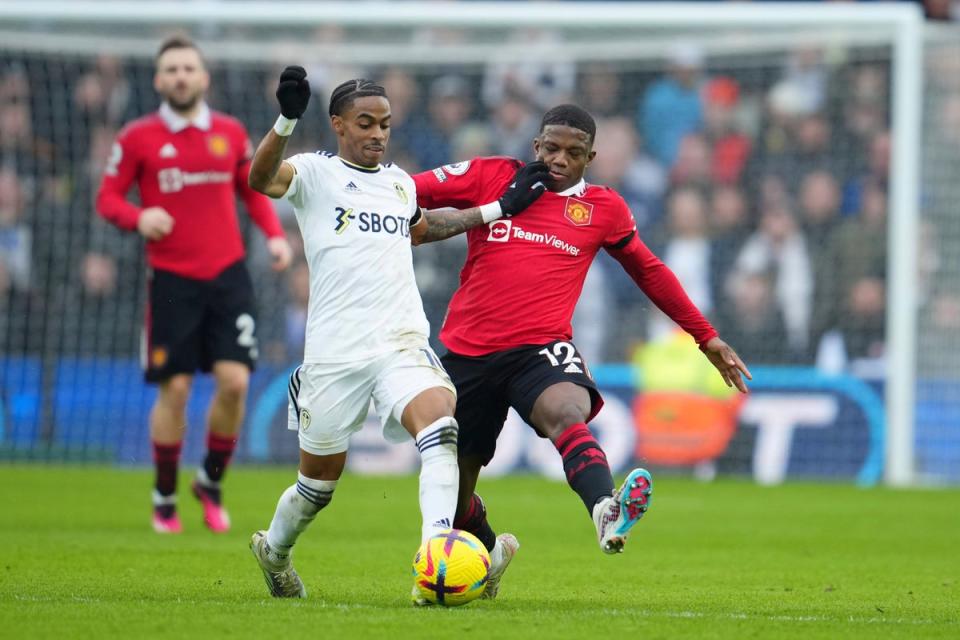
What has been said about it?
Fans have taken issue with the small minority who have engaged in tragedy chanting, claiming it is distressing to hear serious events being used in mockery.
"I should be able to take my eight-year-old son to a football game without him having to ask me ‘Daddy, why are they calling me a murderer?’” Liverpool fan Steven Hoare told the BBC.
Josh Sexton, another Liverpool fan, added: "Liverpool fans shouldn’t still be carrying these horrible stereotypes and being reminded of this terrible day in their history over and over again."
As the new football season kicks off, the CPS, police, clubs, player bodies and the Premier League, English Football League, Women’s Super League, Women’s Championship, National Football League and the national referee organisation are aiming to explain to football fans the impact of this behaviour and the punishment they could face if they commit a crime.
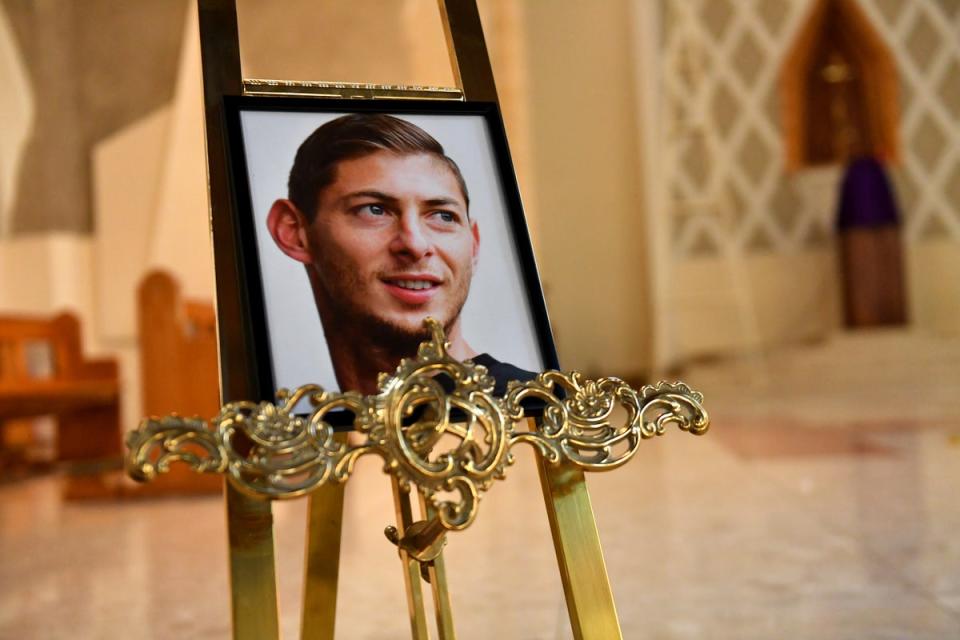
There have been calls for fans to self-police by calling others out and also alerting authorities when tragedy chanting happens.
FA chief executive Mark Bullingham described tragedy-related abuse as “completely unacceptable”.
He said: “This behaviour is highly offensive and can have a lasting effect on the families, friends and communities who have been devastatingly impacted by these events.”
Premier League chief executive Richard Masters added: “We strongly believe there is no room for abhorrent tragedy abuse in football.
“Along with our clubs and the authorities, we are committed to sanctioning those found guilty and will also focus on educating fans of all ages, so they understand why this abuse is so hurtful and unacceptable.”
Trevor Birch, English Football League chief executive, also said: “There is absolutely no place for football tragedy abuse in any walk of life, so that is why the game and authorities, including the CPS, are introducing strong new measures to combat this behaviour.”
⚽️ On the pitch
📋 On the touchline
🏟️ In the stands
👊 | Football should be a safe and enjoyable experience. The @FA, @premierleague and @EFL are introducing measures to help improve behaviour across the game, and address the issue of football tragedy abuse.#BCAFC— Bradford City AFC (@officialbantams) July 31, 2023
How are clubs responding?
Manchester United and Leeds both issued statements condemning the chanting after they played earlier in the year. Liverpool have also said it "has to stop".
Bradford City released a statement on July 31: “Football should be a safe and enjoyable experience. The FA, Premier League, and EFL are introducing measures to help improve behaviour across the game, and address the issue of football tragedy abuse.”
There has also been a joint statement from English football authorities.
This read: “To challenge the totally unacceptable presence of football tragedy abuse, for season 2023/24, regulation changes and tough new measures have been introduced which will see people who are found to have committed offences face stadium bans and potential criminal prosecution.
“The issue is focused on offensive chanting, gesturing and displaying offensive messages based on football-related tragedies, which causes significant distress to the victims’ families, survivors and affected club supporters. Football authorities, supporter groups and law enforcement organisations, including the police and CPS, have united to crack down on fans who participate in this vile form of abuse.
“In addition to bans and criminal sanctions, a range of in-stadium, in-classroom and online resources will be rolled out under the Love Football Protect the Game banner, to educate adults and children alike about the hurt tragedy chanting causes. Ground regulations have also been updated to incorporate references to tragedy chanting.
“The game will also continue its efforts to combat dangerous, illegal and unwelcome behaviour off the pitch, be it in the stands or online.”

 Yahoo News
Yahoo News 
